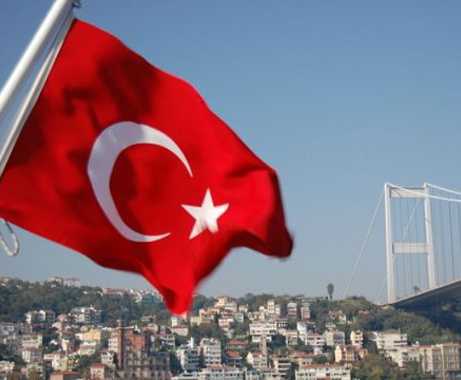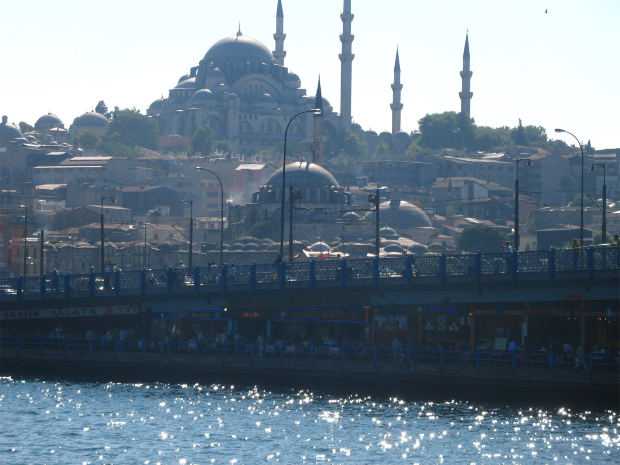World renown historian Guenter Lewy in his article titled “Revisiting the Armenian Genocide” published in Fall 2005 edition of Middle East Quarterly ( https://www.meforum.org/895/correspondence ) states:
“…Most of those who maintain that Armenian deaths were premeditated and so constitute genocide base their argument on three pillars: the actions of Turkish military courts of 1919-20,…, the role of the so-called “Special Organization” accused of carrying out the massacres, and the Memoirs of Naim Beywhich contain alleged telegrams of Interior Minister Talât Pasha…. Yet when these events and the sources describing them are subjected to careful examination, they provide at most a shaky foundation from which to claim, let alone conclude, that the deaths of Armenians were premeditated….”
How can you argue with the truth? Lewy called it as it is.
Then, Lewy penned the following review of a book by Richard Hovannisian (ed)., The Armenian Genocide: Cultural and Ethical Legacies, , another hole-in-one:
“ BOOK REVIEW BY GUENTER LEWY
Readers familiar with Russian and Turkish history will experience the same sense of unreality in reading Hovannisian’s insistence that the Armenian disaster in 1915 was entirely unprovoked and the result of a xenophobic nationalistic mindset and a total war ethic on the part of the Young Turk regime. In this narrative there is no place for the decades-long armed struggle of the Armenian revolutionary movement for independence or for the thousands of Turkish Armenians who fought a guerrilla war behind the Ottoman army in 1915, cut roads and lines of communications, and generally aided the Russian invader. Henry Morgenthau, the American ambassador in (Istanbul), reported to Washington on 25 May 1915 that nobody put the Armenian guerrillas at less than 10,000, and that 25,000 was probably . . closer to the truth.
All this took place in a situation of extreme danger for the Ottoman regime caused by serious military setbacks. Bragging about the Armenian contribution to the Allied war effort, Boghos Nubar, the head of the Armenian delegation, told those at the Paris Peace Conference on 18 March 1919 that the Turks had devastated the Armenians in retaliation for their unflagging devotion to the Allied cause. None of this can justify the brutality and extreme callousness with which the Young Turks carried out the deportation of the Armenian community from their ancient homeland in Anatolia at a huge cost in innocent lives, but it provides the indispensable historical context for the human catastrophe that ensued.
According to Hovannisian and other contributors to this volume, the scholarly world has accepted the Armenian genocide, and all those who question the Armenian version of these tragic events are “genocide deniers.” Yet while many historians indeed speak of the first genocide of the twentieth century, other historians, including well-known scholars of Ottoman history such as Roderic Davison, Bernard Lewis, and Andrew Mango, while not questioning the horror that transpired, have raised doubts about the appropriateness of the genocide label for the occurrences of 1915.
Ignoring this formidable array of learned opinion, Armenians continue to assert with superb arrogance that the Armenian genocide is incontrovertible fact and established history that can be denied only by lackeys of the Turkish government or morally obtuse individuals. Unless there is a change in this attitude and Armenians accept the existence of a genuine historical controversy, I see little hope for ending this almost century-old conflict.
Guenter Lewy
University of Massachusetts, Amherst “
DR. GWYNNE DYER
Dr. Gwynne Dyer simplified the expression of the above scholarly findings so succinctly and eloquently that I think all honest writers should quote it in their fight against Armenian falsifiers:
“… The deafening drumbeat of the propaganda, and the sheer lack of sophistication in argument which comes from preaching decade after decade to a convinced and emotionally committed audience, are the major handicaps of Armenian historiography of the diaspora today…”
The Armenians have defined the Turkish-Armenian conflict one way, their way, for 93 years. Even this could be understood within the context of ethnic and/or religious fanaticism. After all, it is a free country, you can believe whatever you want, even that the world is flat. Problem arises when the Armenians demand their claims be declared as settled history with zero tolerance for the other side of the story, coming from Turks and non-Turks alike. The problem turns into a criminal conduct when these Armenian demands turn to Armenian violence, as in Armenian terrorism that claimed 70+ innocent lives (three right here in Southern California) since 1973, aimed at imposing the Armenian will on others.
Whether the Armenian claims of genocide are recognized by this country or that, does not change the fact that Armenians engineered, provoked, and waged a civil war within a world war; took up arms against their own government; killed their Muslim/Turkish neighbors; joined the invading enemy armies; demanded territories where they were a minority to create Greater Armenia; and did all that with the help of active allies (Russia, Britain, France), passive allies (U.S. diplomats, Protestant missionaries, the New York Times) and others.
Furthermore, the ubiquitous Armenian propaganda cannot change the
“6 T’S OF THE TURKISH-ARMENIAN CONFLICT : ”
1- Tumult (Armenians taking up arms against their own government,)
2- Terrorism (by Dashnaks, Hunchaks, and other Armenian terrorist organizations,)
3- Treason (Armenians joining the invading enemy armies)
4- Territorial demands (where Armenians were a minority)
5- Turkish suffering (at the hands of Armenian revolutionaries and terrorists; number exceeds half a million Muslims, mostly Turks)
6-Tereset (temporary resettlement triggered by the above 5 T’s and misrepresented by Armenians as genocide.)
SWEDISH EYEWITNESS BELIES ARMENIAN CLAIMS OF “RED RIVER”
Here, for instance, is the eyewitness report refuting and devastating the Armenian claims and deception once and for all:
“…For fourteen days, I followed the Euphrates; it is completely out of the question that I during this time would not have seen at least some of the Armenian corpses, that according to Mrs. Stjernstedt’s statements, should have drifted along the river en masse at that time. A travel companion of mine, Dr. Schacht, was also travelling along the river. He also had nothing to tell when we later met in Baghdad… …In summary, I think that Mrs. Stjernstedt, somewhat uncritically, has accepted the hair-raising stories from more or less biased sources, which formed the basis for her lecture…”
Source: H.J. Pravitz, A Swedish officer, Nya Dagligt Allehanda, 23 April, 1917 issue (A Swedish Newspaper published from 1859 to 1944)… This is the right side of history… This is where Armenian deception is exposed…
BOGUS ARMENIAN PRESS REPORTS
Here are the bogus Armenian press reports from WWI that were refuted by a rare missionary whose heart was in the right place:
“…In some towns containing ten Armenian houses and thirty Turkish houses, it was reported that 40,000 people were killed, about 10,000 women were taken to the harem, and thousands of children left destitute; and the city university destroyed, and the bishop killed. It is a well- known fact that even in the last war the native Christians, despite the Turkish cautions, armed themselves and fought on the side of the Allies. In these conflicts, they were not idle, but they were well supplied with artillery, machine guns and inflicted heavy losses on their enemies….”
Source: Lamsa, George M., a missionary well known for his research on Christianity, The Secret of the Near East, The Ideal Press, Philadelphia 1923, p 133… This is the right side of history… This is where Armenian deception is exposed…
“…Few Americans who mourn, and justly, the miseries of the Armenians, are aware that till the rise of nationalistic ambitions, beginning with the ‘seventies, the Armenians were the favored portion of the population of Turkey, or that in the Great War, they traitorously turned Turkish cities over to the Russian invader; that they boasted of having raised an Army of one hundred and fifty thousand men to fight a civil war, and that they burned at least a hundred Turkish villages and exterminated their population…” Source: John Dewey, The New Republic, 12 November 1928. This is the right side of history. This is where Armenian deception is exposed…
“…In all the countries, under all the regimes, the staff of the armies in the field evacuate towards the back, the populations which live in the zone of fights and can bother the movement of the troops, especially if these populations are hostile. Public opinion does not find anything to criticize to these measures, obviously painful, but necessary. During the winter of 1939-1940, the radical – socialist French government evacuated and transported in the Southwest of France, notably in the Dordogne, the entire population of the Alsatian villages situated in the valley of the Rhine, to the east of the Maginot line. This German-speaking population, and even sometimes germanophil, bothered the French army. It stayed in the South, far from the evacuated homes and sometimes destroyed until 1945….And nobody, in France, cried out for inhumanity…”
Source: Georges de Maleville, lawyer and a specialist on the Armenian question, La Tragédie Arménienne de 1915, (The Armenian tragedy of 1915), Editions F. Sorlot-F. Lanore, Paris, 1988, p 61-63. This is the right side of history… This is where Armenian deception is exposed…
Armed with the rock solid truth, fortified with honesty and fairness, let’s expose the Armenian propaganda for what it is: ethocide, mass-deception for political/personal gain…





